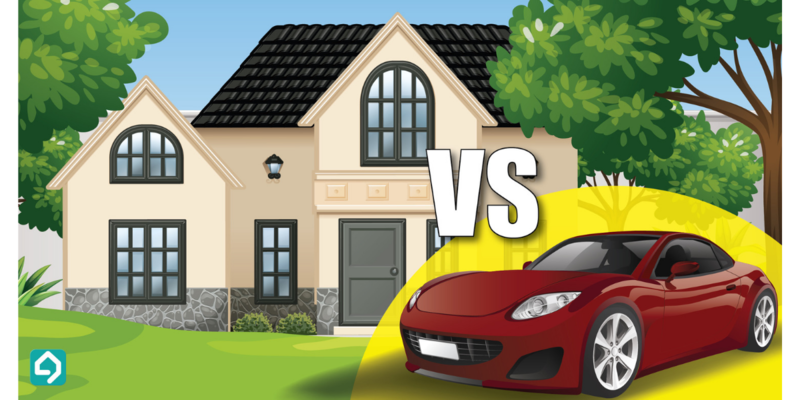
For those looking to own their first home, this is a great year to consider buying your first home due to the extension of the Home Ownership Campaign (HOC) 2019 which has been extended to 31st December 2020 as announced by the Minister of Finance, YB Lim Guan Eng. This constitutes additional savings on the Stamp Duty for the Memorandum of Transfer (MOT) and for the loan agreement for those buying under the HOC.

Source: Twitter.com
Minister of Housing and Local Government, YB Zuraida Kamaruddin
Also recently, the Minister of Housing and Local Government, YB Zuraida Kamaruddin announced that first time home buyers burdened with student loans may stand a chance to buy their own home, following a move to exempt them from being blacklisted from purchasing homes in the Central Credit Reference Information System (CCRIS).
In a way, this could be good news for those burdened by National Higher Education Fund Corporation (PTPTN) loans looking to purchase but they also need to be responsible in managing their debt ability to ensure prudent financial management.
Factors you should consider include:
1. Price to Rent Ratio
Price to Rent Ratio is the Average Property Price divided by the Annual Rent. For instance, if the property that you are staying in is RM400,000 and the monthly rental is RM2000, it would translate to:
Price to Rent Ratio = 400 000 / (2000 x 12 months) = 16.7
P/R ratio below 15: this indicates that it is better to buy a home in the current real estate market state.
P/R ratio between 16 and 20: this is a neutral zone that means it is probably better to rent a property rather than buying one.
P/R ratio 21 and above: such real estate markets indicate that it is better to be a renter than a homebuyer.
Of course, ultimately buying or renting is a very personal decision, but the above will be a good gauge on the rental gap and the property price gap whether it makes financial sense to buy or rent.
2. Your Financial Capability

Source: Unsplash.com
It would be good to start doing your budgeting on how much money you will need – from the down payment, legal fees, stamp duties, loan agreements to other miscellaneous fees involved.
How much money do you need to have in your savings before buying? Generally, for the sub-sale market (secondary market properties), you may need to factor in more in your budget as the property may be older (requiring renovation costs) and down payment (generally 10% of your purchase price, e.g. RM40,000.00 if you are buying a RM400,000.00 property). You may need to allocate approximately 3 - 5 % of the purchase price for legal fees, stamp duties, loan agreements etc.
If you buy new properties from the primary market (which may only be ready in 3 years), the developer may provide discounts and rebates which may not need as much down payment.
But you will need to consider the need to start paying the monthly instalments progressively as the development is being built. Normally, under progressive payments, the developer will bill your bank in stages as the property is being built, where the bulk of the monthly instalments will only come when closer to the full completion of the property. Plus, you may get to enjoy the benefits under the HOC 2019 if the particular project is registered under the HOC scheme.
3. Calculate DSR When Considering Loan Eligibility

Source: Unsplash.com
Debt Service Ratio in Malaysia is the method used by banks to calculate whether or not you can afford the loan you are applying for, in terms of the monthly instalments. Generally, this is based on your monthly nett income and deducting the total fixed debt you have to pay each month for your student loans, car loans etc to see whether the property loan you are trying to apply for is within your financial means.
The lower your DSR is, it would mean that it is better (generally between 30% - 50%), although some banks may allow higher. But note that each bank is different, hence check with several banks before deciding.
Scenario:
Individual A is buying a new house and he is applying for a new housing loan.
His monthly nett income: RM6000.00
Existing monthly commitments:
a. Car Loan instalment: RM600
b. Student Loan: RM200
Commitments for new housing loan: RM1800
Total commitments: RM600 + RM200 + RM1800 = RM2600
Debt Service Ratio: RM2600 / RM6000 x 100 = 43.3%
So, if the bank’s guidelines for DSR is less than 50%, he is qualified for the loan.
4. Good Debt vs. Bad Debt
As a young graduate, we get a job and at the start of our careers, we start earning our monthly income based on our own efforts. This can be very liberating, to have a sense of independence and choice in our decision-making process. Many will often need to purchase a car for convenience to get to work and also may be offered a credit card as well.
Hence, it is important to understand that not all debt is created equal. A car is a deteriorating asset whereby its price will keep depreciating every year and the price of a car may drop up to 20% after the first year from a brand new purchase.
Therefore, owning a good property may allow a young working adult to start accumulating wealth in the form of savings, where a portion of an instalment is allocated to pay down a property over a period of time (e.g. 30 years).

Due to inflation and other factors, property prices generally will appreciate in the longer term of 15 – 20 years and may even double during that period. Hence, this is one of the strongest value propositions on purchasing a good property over renting if you look at it from a longer period of 15 – 20 years.
Once the loan is paid off over 30 years, you will own an asset that would likely have appreciated over time that is a fully paid asset that you can rent out or even stay in or even refinance need be.
Also, if you think about it, when you buy a particular property you may only have put down a 10% down payment, but if the property appreciates, for instance, 3-5% every year due to inflation, it may have offset against your down payment after a few years.
Note that you will need to carry out sufficient research to ensure that you buy a good value property in a desirable location that has the highest chance of appreciation over time.
Whether you are looking for a new place to rent or even a place to buy, the process of hunting for your dream property is always exciting. Enjoy your property journey, no matter which stage in life you are in. All the best!

This article is contributed by former REHDA Institute general manager and property investor David Shieh Chong.
David Shieh Chong is an avid property investor who manages and co-owns more than ten properties, since 2009. He is passionate about real estate and relaxes during the weekend by viewing properties and keeps abreast with the property sector.
A corporate lawyer by profession, he has experience on various aspects of real estate, including in government real estate promotion at Malaysia Property Incorporated (under Economic Planning Unit Minister), real estate agency work and also has worked with top property developers at the Real Estate and Housing Developers Association (REHDA) Institute.
Did this article help you decide between buying or renting a property? Let us know in the comments sections below!
(23 July 2019)
